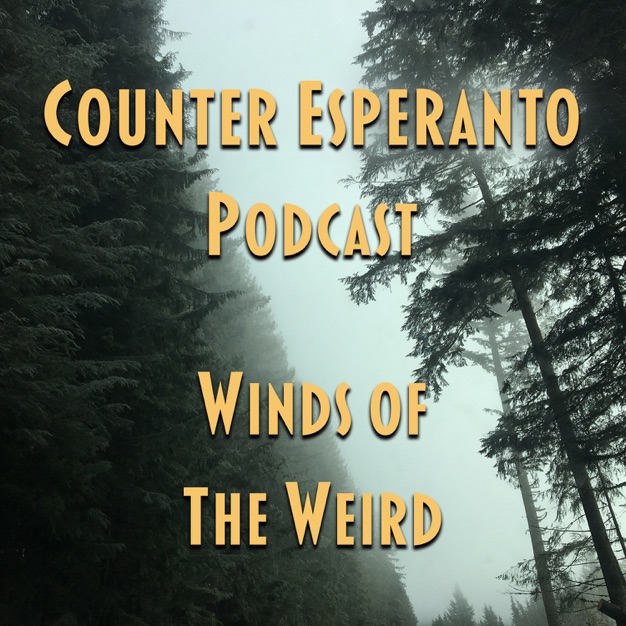
Counter Esperanto Podcast: Winds Through The Weird
Karl, Jubel, Divers and Hands
Talk about everything weird. A lot of it connected by Twin Peaks, David Lynch and Mark Frost.
- 1 hour 25 minutesCounter Esperanto Podcast Presents: An Attempted Conversation About Robert Aickman Episode 4
Welcome to the fourth episode of our “Attempted Conversations about Robert Aickman” series. This time around, we were quite fortunate to be able to speak to author, songwriter, book collector and publisher, R.B. Russell. Ray has published several novels, novellas and collections of short stories, is the author of Robert Aickman: A Biography, and along with Rosalie Parker, runs the award winning Tartarus Press, which is a godsend to those of us who enjoy beautifully crafted editions of strange books.
When I asked him if there was an aspect or work of Robert Aickman’s that he felt was underappreciated, he immediately responded with Aickman’s late novel, Go Back at Once which wasn’t published in his lifetime.
Aickman himself said in one of his letters to Kirby McCauley that Go Back at Once is a deeply odd novel, even for him. Throughout its course, there’s very little that one could describe as “supernatural,” but there’s something of the transcendently weird, especially in the novel’s back half. The first portion of the book, however, feels like a send-up, if not a pastiche of what would now be termed a “Young Adult” novel: a story about two young women making their start in the world, and finding the world lacking. Then, they are whisked away to a strange land, which plays out a bit like a “fish-out-of-water” story like Alice’s Adventures in Wonderland or The Wizard of Oz.
Russell couldn’t have chosen a more apt work to discuss, especially as his biographer. The work is steeped in all of Aickman’s interests and predilections, from his devotion to the primacy of Art over all things, to his troubling and complex fascination with Fascism, and, as always, his facility to imbue the ordinary world with a deep sense of unease and the uncanny. This is heady stuff indeed!
Twin Peaks and David Lynch fans will also want to listen, because Russell is a big fan, and he has some very astute observations to make as to the spiritual (if not aesthetic) linkages between the two artists.
28 November 2024, 8:35 pm - 1 hour 44 minutesCounter Esperanto Podcast Presents: An Attempted Conversation About Robert Aickman Episode 3
In this, the third episode of our Attempted Conversations About Robert Aickman, we welcome John Thorne back to the show. John is co-creator of the legendary Twin Peaks fanzine Wrapped in Plastic, the book Ominous Whoosh, and most recently, Devious Dreams: Reimagining David Lynch’s Mulholland Drive.
First, we talk to John about his book, which guides the reader through the strange world of Mulholland Drive, and its unlikely journey from TV pilot to one of the most heralded works of cinema in this still-young century.
Afterwards, we delve into two Robert Aickman stories, “Your Tiny Hand is Frozen,” and his much-anthologized “The Hospice.” While John is a relative newcomer to the strange world of Robert Aickman, he’s a veritable expert on David Lynch, which makes him a perfect companion as we consider the eerie resonances between the two creators’ work, which, while being very different in theme and aesthetic, are both characterized by an abiding commitment to the preservation of Mystery above all else.
“The Hospice” is available for free online, and can be found in Aickman’s Cold Hand in Mine collection.
“Cold Hand in Mine” is available in Aickman’s The Wine-Dark Sea collection.
Music at the beginning: “Che Gelida Manina” from La Bohème, as sung by Enrico Caruso.
Edmund St. Jude – voiced by Ray Russell
Bothersome Caller – Ramsey Campbell
18 October 2024, 2:28 pm - 1 hour 29 minutesCounter Esperanto Podcast Presents: An Attempted Conversation About Robert Aickman Episode 2
In this, our second Attempted Conversation about Robert Aickman, we have brought in a formidable duo as guests to grapple with two Robert Aickman stories: “Ringing the Changes,” and “No Stronger Than a Flower.” Hilary and Indigo of the Full Blossom of the Evening Podcast, who are newcomers to the Capital-S Strange world of Robert Aickman, bring their talents of intertextual analysis to bear on two very different (yet tantalizingly resonant) stories of marital tension.
Like your “Humble Hosts,” Hilary and Indigo fell quickly in love with Aickman’s world of “The Strange,” because, as fans of David Lynch, it was easy to do so: while both artists could hardly be further apart aesthetically, they are both committed to the power of mystery, and the understanding that the line that divides the concrete world and the world of the unconscious, is both porous and slippery.
While we believe that Aickman’s stories are uncommonly resistant to the detrimental effects of spoilers, you can find one of them for free online at this link:
Ringing the Changes by Robert Aickman Free Online
And the other can be found cheaply in the Faber & Faber collection The Unsettled Dust. If, like us, you love Aickman’s work enough to spring for something fancy, Tartarus Press has the complete short fiction of Robert Aickman in beautifully crafted hardcover editions of Aickman’s collections under their original titles. Here is a link to one of his best titles, Sub Rosa. Links to the other titles are also on this page:
Robert Aickman on Tartarus Press
A big thanks to all of you who have stuck with us over the years. Here’s to many more!
23 August 2024, 6:51 pm - 1 hour 2 minutesCounter Esperanto Podcast Presents: An Attempted Conversation About Robert Aickman Episode 1
Greetings listeners!
We are pleased to bring you the first episode in a series about one of our favorite writers, Robert Aickman. As longtime listeners of Counter Esperanto know, we are something of a hybrid podcast: we began as a Twin Peaks podcast which filtered that series, and other David Lynch projects through weird stories, folklore, and history. In that process, we have often featured authors such as Thomas Ligotti, Franz Kafka, and of course H.P. Lovecraft.
It is Robert Aickman, though, that we feel deserves special attention. As we will discuss in this inaugural episode, those who have loved the mystery of Lynch’s films, especially the late films, and especially Twin Peaks: The Return, will find much that resonates with Robert Aickman’s brand of “the strange.”
To get a sense of what this author is all about, read one of his most anthologized stories, “The Hospice,” right here.
Robert Fordyce Aickman, born June 27, 1914, was in his time chiefly known, and now chiefly remembered, for two things. First would be his work as co-founder of the Inland Waterways Association, which was instrumental in the rejuvenation of the British canal system, which, by the mid 20th century, had long fallen into disrepair.
The second would be for his career as a writer of what he called “strange stories.” While he wrote all his life, Aickman was something of a late-bloomer, publishing most of his work after the age of 40. Still, he must have felt that being an author was in his blood. His maternal grandfather was Richard Marsh, a contemporary of Bram Stoker whose macabre and spooky novel The Beetle initially outsold Dracula upon release.
Aickman was a believer in ghosts and the supernatural, and as a young man participated in ‘ghost hunting’ investigations, which included excursions to the Borley Rectory, which was infamous as one of the most haunted buildings in England.
When he began writing stories in earnest, Aickman had become editor of the Fontana Book of Ghost Stories, generally including one of his own recent tales in the mix.
Robert Aickman wrote 48 “Strange Stories,” In addition to a handful of novels and novellas. While not great in number, Aickman’s stories stand alone not only in their economy and effectiveness of characterization, but also in their ability to submerge the reader into the feeling of a real dream, or nightmare. These are subtle stories which, while they aren’t necessarily to everyone’s taste, they have nonetheless gained new life, an “Aickmannessance,” if you will, thanks to the wide availability of Faber & Faber’s reprints, the masterful and astute readings by actor Reece Shearsmith, available on Audible, and of course deluxe volumes of his stories under their original titles published by Tartarus Press, run by authors R.B Russell, and Rosalie Parker. Russell also wrote a fantastic biography of Aickman, also available by Tartarus.
28 June 2024, 10:53 pm - 31 minutes 24 secondsEp. No. 46 Just a Taste of the Elixir: a “Project Mercy Seat” Teaser
Merry Christmas, Happy Holidays, and Merry Yule, everyone.
Today, just in time for us to call it a Christmas gift to you, we present just a taste of our Super Secret Project that we’ve been cooking up for over a year now, one which we have given the provisional title, “Project Mercy Seat.” We don’t know if it will be a novel, a series of interconnected stories, or something else entirely, but we do know that we will be sending out these dispatches periodically as we work. This is a sprawling work of Weird Fiction that takes place over the course of 140 years, from evildoings near a mining town in Washington State, to dark drawing rooms in the roaring 1920s, to a van making a pilgrimage to San Francisco in 1967, to realms beyond all common understanding. And we’re just getting started!
Karl kicks it off with a reading of a short prose poem by the great Clark Ashton Smith, and after a brief introduction, Jubel reads a portion of the journal of one of our primary characters, Leonora Wiggins. To finish off, we re-enact a lost interview with a musician who has perhaps bitten off more than he can chew, existentially speaking.
All music and editing by Jubel Brosseau. Text written by Jubel Brosseau, and Karl Eckler.
25 December 2023, 4:25 pm - 1 hour 41 minutesEp. No. 45 HBO’s The Last of Us, and the Terrifying Power of Love
The Last of Us series of games on Playstation did a great deal to promote serious consideration of the medium as a true narrative art form. The performances, the attention to detail in building its characters and world, and especially the writing and directing from Neil Druckmann and others gave a story that players are still discovering, and in indeed weeping over.
It’s this emotional core, among other things, which has been brilliantly transferred to the medium of television thanks to Druckmann and Chernobyl creator Craig Mazin. The HBO series eschews many of the game’s action sequences in favor of expanding the characters, the world, and the complex connection between protagonists Joel and Ellie.
Ultimately, as Druckmann and Mazin have stated, The Last of Us is a story about love. Love of all kinds, how it survives through the darkest of times, how it enriches and enlivens us, and how it may cause us to commit unthinkable acts.
For this conversation, Karl and Jubel are joined by Bryon Kozaczka of the acclaimed Twin Peaks Unwrapped and Geekonomics Podcast, and Josh Minton of the Red Room Podcast, In Our House Now, and author of the book A Skeleton Key to Twin Peaks. We thank you for joining us for our at-times emotional discussion, as we celebrate this fantastic story.
29 March 2023, 6:04 pm - 1 hour 4 minutesEp. No. 44 Twin Peaks: The Return Rewatch Wrap-up
2022 was something of an experiment for Karl and Jubel, and we believe it was a resounding success. We’ve always talked about wanting to incorporate more interviews into the mix, so we did five consecutive interview episodes exploring Twin Peaks: The Return. We want to extend our heartfelt thanks to John Thorne, Rob King, John Bernardy, Lindsay Stamhuis, and Adam Stewart for their generosity, patience, and insights.
To paraphrase some version of Dale Cooper towards the end of the series, “we hope to see each and every one of them again.”
This episode is something of a wrap-up on the rewatch and discussions of the past year, and it’s particularly tangent heavy. For example, we bring up the topic of Hauntology, which we explored a bit with Adam, and then we drifted off to other things. This is due in part to the fact that while we had questions written down that we wanted to ask each other, we decided in the moment that a loose discussion would be more fun, and yield some unexpected results.
The other reason was that Jubel was in the midst of a really gnarly head cold, so keeping himself on track was an exercise in futility. Our hope is that the magic of editing has at least made the conversation listenable!
12 January 2023, 10:00 pm - 1 hour 42 minutesCounter Esperanto Podcast: Tangents About Twin Peaks: The Return Part 5
This episode marks the last in a series of five episodes following our re-watch of Twin Peaks: The Return, which feature guests each of whom bring a unique and thorough perspective to the puzzling, beautiful, haunting, heartbreaking, harrowing and frustrating text that is Twin Peaks. Karl and I would love to offer our deepest thanks to John Thorne, Rob King, John Bernardy, Lindsay Stamhuis, and of course, this episode’s guest Adam Stewart. We hope to talk to each of them again, someday soon.
Our last guest in this series, Adam Stewart of Diane Podcast takes us into a broad view of Twin Peaks: the space of “post-theory” Twin Peaks. To get there, we need to talk about hauntings. We start with the classic author of ghost stories M.R. James, what made his work so special at the time, and why his work resonates now, and why it also resonates with our beloved show.
We talk about John Thorne’s new book, Ominous Whoosh and question whether Twin Peaks theory doesn’t get any better, or comprehensive, and if so, now what?
From there, things get “hauntological,” (a term coined by Jacques Derrida, and popularized in the modern era by media critics such as Mark Fisher, a podcast favorite for Diane as well as us), and we see how the past haunts the present in the real world, in the world of the show, in media at large, and how all of these realms interplay and comment on each other.
For a deeper view, we discuss the concept of “late style” in art, and how David Lynch’s late style comes to bear as he revisited the world of Twin Peaks all these years later.
27 October 2022, 11:59 pm - 1 hour 37 minutesCounter Esperanto Podcast: Tangents About Twin Peaks: The Return Part 4
This is the next in our series of revisits of Twin Peaks: The Return. This time we are happy today to have with us author, teacher, and co-host of The Bicks Podcast (Formerly Bickering Peaks), Lindsay Stamhuis. We begin by covering Parts 13-16, but we branch out and talk about the series as a whole.
Lindsay, Karl and Jubel cover a great deal of ground in this one. Since this sequence of Parts carries the bulk of the tragic and perplexing arc (or is it tragic?) of Audrey Horne, we thought it fitting to bring Lindsay on at this point, since she has written about Audrey several times on the 25 Years Later Site, and our hosts are excited to delve into that particular corner of strangeness.
In Part 16, we finally see the return of our Cooper! Or is he “our Cooper”? Who is it that wakes up in that hospital bed, and how much of him remains? We get into one of the central themes of The Return, which is essentially a deconstruction of the hero myth itself. For all his charm, competence, and heroism, Special Agent Dale Cooper is a complex figure, and true to much in David Lynch, there is a dark side squirming under the surface.
14 July 2022, 3:26 pm - 1 hour 29 minutesCounter Esperanto Podcast: Tangents About Twin Peaks: The Return Part 3
We are happy to begin our next exploration into the Return with John Bernardy: journalist, Twin Peaks master-theorist, and host of Blue Rose Task Force podcast, which I believe is the first of its kind, being a holistic podcast that looks at the entirety of Twin Peaks including production details.
John, Karl and Jubel start off discussing Twin Peaks: The Return Parts 9-12, but soon branch off into other vistas of strangeness. They discuss the troubling saga of the Hornes, their favorite new characters and bits, the secret hidden inside Diane and Sarah Palmer’s favorite beverages, and the strange, open-endedness of the whole story.
Our guest John brings his extensive production knowledge to bear on these details, and elucidates his “Moebius Strip” diagram, which he says is the key to one of the major themes of the Return, exemplified by Dr. Jacoby/Amp’s golden shovel.

So fix your hearts, shovel your way out of the sh*t, and have a listen!
2 June 2022, 3:06 pm - 1 hour 28 minutesCounter Esperanto Podcast: Tangents About Twin Peaks: The Return Part 2
Greetings Listeners! We continue our series of guest-packed Twin Peaks: The Return re-watch discussions with author, scholar, and all-around lovely gent Rob E. King!
Rob E. King is an associate librarian at Texas Tech University’s Southwest Collection/Special Collections Library and a doctoral student in English at Texas Tech University. He has contributed to 25YL, Blue Rose Magazine, Twin Peaks Unwrapped podcast and published in New American Notes Online and the West Texas Historical Review.
Rob is also co-editor with Christine Self and Robert Weaver of a book of essays titled David Lynch and the American West: Essays on Regionalism and Indigeneity in Twin Peaks and the Films.
We begin our discussion with classic Weird writer (and creator of Conan the Barbarian) Robert E. Howard, discuss regionalism in that author’s writings, and bring it around to Twin Peaks, discussing the importance of the Las Vegas bits, Jerry’s Odyssey, the role of electricity and telecommunication, and much more.
31 March 2022, 5:38 pm - More Episodes? Get the App
Your feedback is valuable to us. Should you encounter any bugs, glitches, lack of functionality or other problems, please email us on [email protected] or join Moon.FM Telegram Group where you can talk directly to the dev team who are happy to answer any queries.
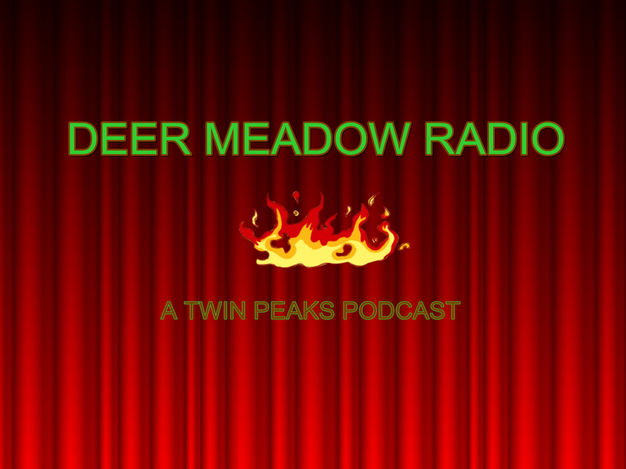 Deer Meadow Radio - A Twin Peaks Podcast
Deer Meadow Radio - A Twin Peaks Podcast
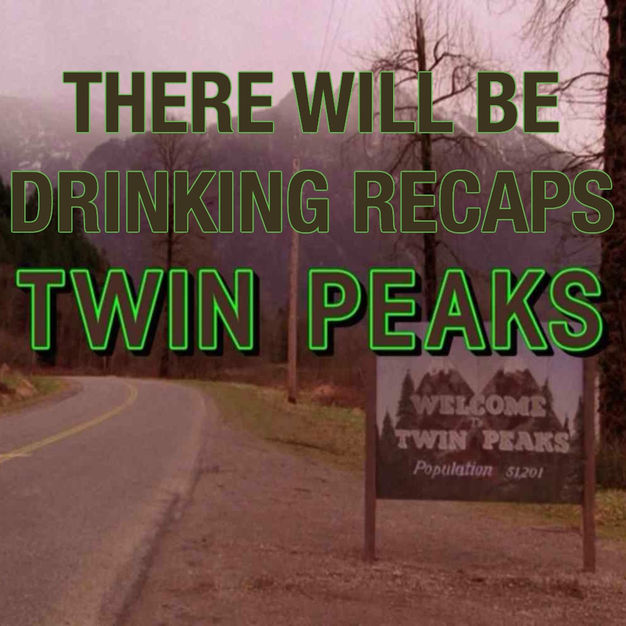 There Will Be Drinking Recaps Twin Peaks
There Will Be Drinking Recaps Twin Peaks
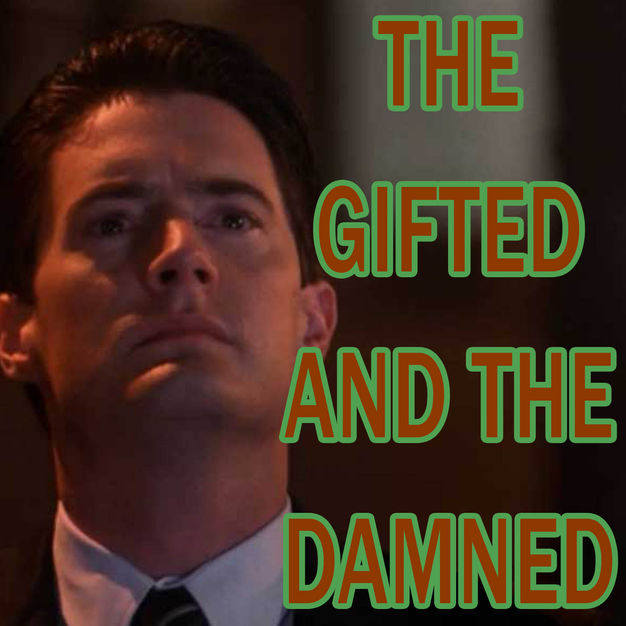 Twin Peaks the Gifted and the Damned
Twin Peaks the Gifted and the Damned
 Bickering Peaks: A Twin Peaks Podcast
Bickering Peaks: A Twin Peaks Podcast
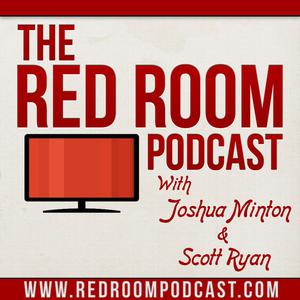 The Red Room Podcast
The Red Room Podcast
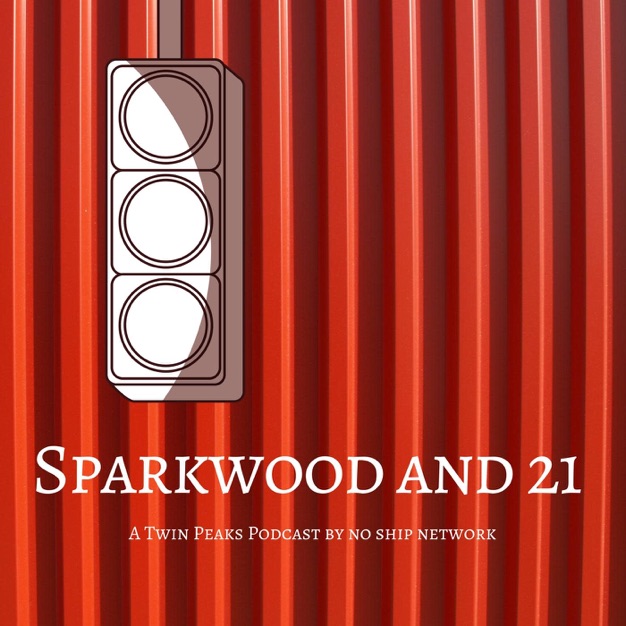 Sparkwood and 21: A Twin Peaks Podcast
Sparkwood and 21: A Twin Peaks Podcast